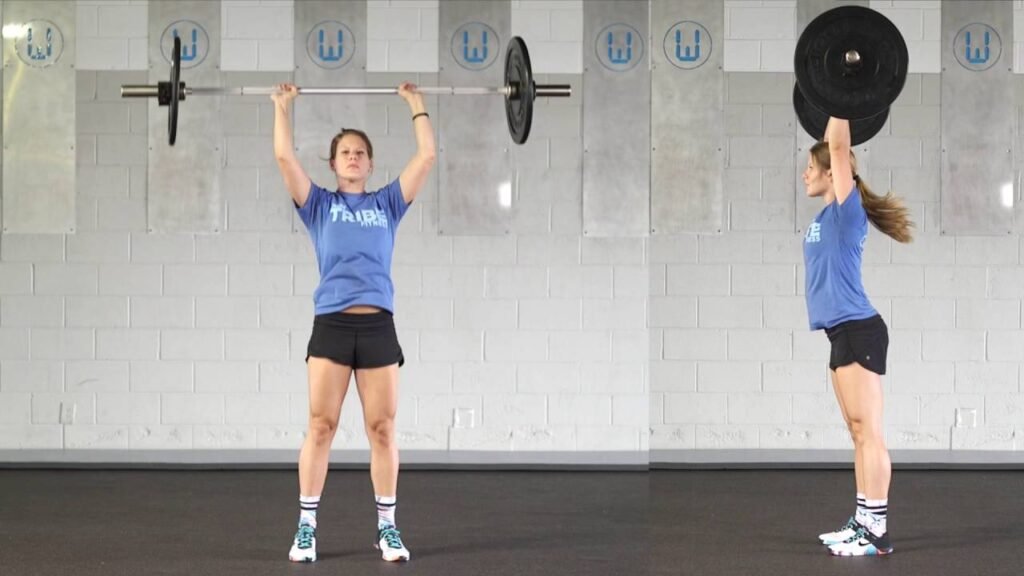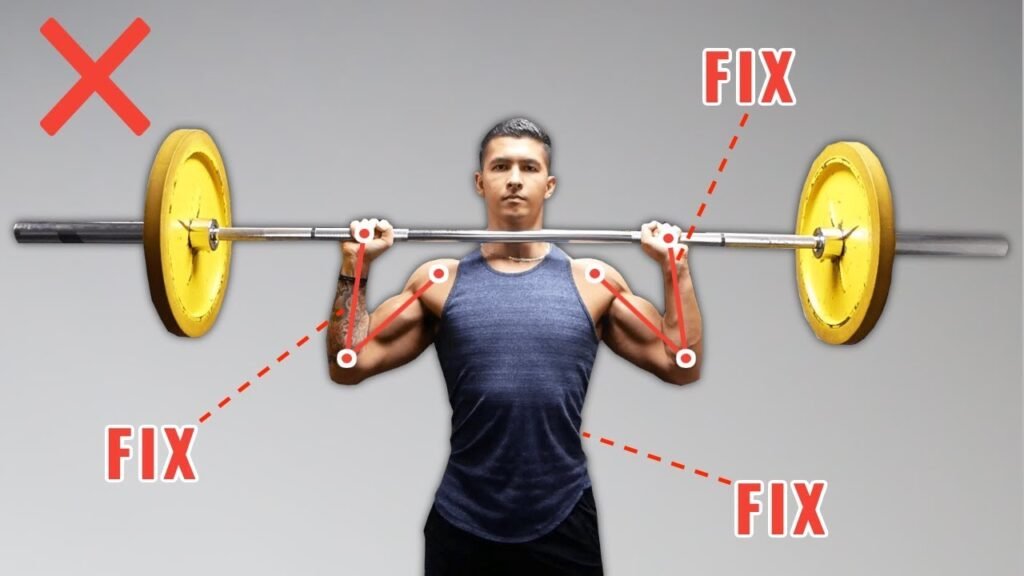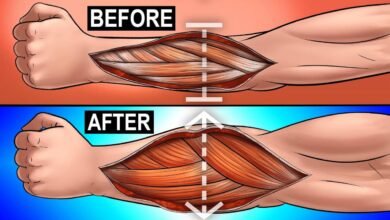Mastering the Strict Military Press: The Ultimate Guide

The strict military press is a staple in strength education, revered for its capacity to build powerful shoulders and improve overall top frame power. This manual delves into everything you need to recognize about the strict military press, from its blessings and suitable methods to incorporating it into your exercise routine.
What is the Strict Military Press?
The strict military press, often called the army press, is a weightlifting exercise that entails pressing a barbell overhead from a standing position without using any leg drive. It’s a natural higher-body strength motion that emphasizes shoulder and triceps engagement.
Benefits of the Strict Military Press
Strength Gains
The military press is fantastic for building uncooked top-body electricity. Keeping the shoulders and hands apart allows for focused electricity improvement, enhancing overall performance in other lifts.
Muscle Development
This workout targets the deltoids, triceps, and higher chests, selling huge muscle increases and definitions in the one’s regions. It’s a cross-to for the ones seeking to construct a solid and muscular top body.
Improved Posture
Regularly performing the military press can help with accurate posture by strengthening the muscles responsible for upright positions. It also encourages a sturdy and solid middle, essential for correct posture.
Functional Fitness
The navy press mimics moves we perform daily, such as lifting gadgets overhead. It makes it noticeably practical, enhancing one’s capability to perform normal obligations quite simply.
Muscles Worked in the Strict Military Press
Primary Muscles
- Deltoids: The fundamental shoulder muscle mass responsible for lifting and rotating the arm.
- Triceps: The muscular tissues on the back of the higher arm that increase the elbow.
Secondary Muscles
- Upper Pectorals: The top part of the chest muscle mass that assists in urgent movement.
Stabilizing Muscles
- Core Muscles: Including the abdominals and obliques, which assist in stabilizing the body during the raise.
- Lower Back: Engages to preserve an impartial backbone and help the upper frame.
Proper Form and Technique

Starting Position
- Stand with toes shoulder-width apart.
- Hold the barbell at shoulder level with an overhand grip, elbows pointing down.
- Engage your center and preserve your chest up.
Execution
- Press the barbell instantly up overhead, extending your palms completely.
- Keep your body still and keep away from using your legs for momentum.
- Lower the barbell lower back to shoulder stage with manipulation.
Common Mistakes
- Using leg power to push the barbell up.
- Overarching the decreased lower back.
- Failing to fasten out the elbows at the pinnacle of the carry.
Equipment Needed
Barbell and Weights
- A trendy barbell and weight plates are vital for acting in the military press. Ensure the weights are as they should be loaded and secured.
Rack
- A squat rack or strength rack is beneficial for accurately putting in place and racking the barbell.
Optional Gear
- Weightlifting Belt: Provides extra support to the lower returned.
- Wrist Wraps: Offer wrist support and balance at some stage in heavy lifts.
Step-by-Step Guide to Performing the Strict Military Press
Warm-up Exercises
- Arm Circles: To loosen up the shoulder joints.
- Shoulder Taps: These are used to interact with the shoulders and center.
- Lightweight Reps: Perform some units with a lighter weight to put together your muscle mass.
Step-by means of-Step Instructions
- Set Up: Position the barbell at the shoulder peak inside the rack.
- Grip: Take an overhand grip, barely wider than shoulder-width.
- Lift Off: Unrack the barbell and step returned.
- Press: Press the barbell overhead, keeping your body tight and stable.
- Lower: Lower the barbell back to shoulder peak with manage.
- Repeat: Perform the preferred quantity of reps.
Breathing Techniques
- Inhale deeply earlier than pressing.
- Exhale as you press the barbell overhead.
Variations of the Military Press
This variation reduces lower body involvement and focuses extra on the shoulders and hands.
Dumbbell Military Press
Using dumbbells allows for an extra range of motion and may assist in accurately balancing various aspects.
Behind-the-Neck Press
This superior variant involves pressing the barbell from behind the neck, growing shoulder engagement, and threatening harm if not performed correctly.

Incorporating the Strict Military Press into Your Workout Routine
Frequency
Aim to include the navy press in your routine 1-2 times weekly to allow for adequate healing.
Sets and Reps
Start with 3-four sets of 6-10 reps, adjusting based on your energy degree and goals.
Combining with Other Exercises
Pair the army press with other top-frame sporting events like rows and bench presses for a balanced exercise.
Progression and Overload
Increasing Weight
Gradually boom the load as you strengthen, ensuring you keep proper form.
Advanced Techniques
- Paused Reps: Hold the barbell on the top for some seconds.
- Tempo Training: Slow the lifting and lowering levels to boom time underneath anxiety.
Plateaus and How to Overcome Them
- Change Variations: Switch to a specific army press variation.
- Adjust Volume: Increase or lower the range of units and reps.
Safety Tips and Precautions
Avoiding Injury
- Warm up well before lifting.
- Use weights that you can take care of with the correct shape.
Spotter Importance
Having a spotter can assist in ensuring protection, especially while lifting heavy.
Corrective Exercises
Incorporate sports like shoulder mobility drills to hold healthful joints.
Common Mistakes and How to Fix Them

Incorrect Form
Focus on retaining an instant route for the barbell and preserving your core tight.
Overarching the Back
Engage your center and use a weightlifting belt to assist your lower back.
Uneven Lifting
Ensure each palm presses the barbell calmly by specializing in balanced muscle engagement.
Comparing the Military Press to Other Shoulder Exercises
Military Press vs. Overhead Press
The overhead press lets in for a bit of leg power, making it more straightforward and taking into consideration heavier lifts.
Military Press vs. Push Press
The push press includes a dip and drives from the legs, making it an extra explosive motion.
Military Press vs. Arnold Press
The Arnold press entails a rotating motion, targeting the deltoids differently and increasing shoulder balance.
Success Stories and Testimonials
Real-Life Examples
Many lifters have visible sizeable energy and muscle gains from incorporating the army press into their workouts.
Transformations
From beginners to advanced athletes, the Navy press has helped rework physiques and improve overall performance.
Expert Opinions
Strength coaches and health experts frequently advocate for the military press’s effectiveness and simplicity.
Conclusion
The strict army press is an effective exercise for building top-frame electricity and muscle. You could obtain incredible consequences by knowing and incorporating the right approach into your habits. Start light, recognition on form, and progressively boom the weight to see continuous improvement.
FAQs:
How often do I need to perform the Navy press?
Aim to include the army press for your exercise routine 1-2 times per week, making allowance for adequate healing between periods.
Can novices do the military press?
Yes, novices can start with lighter weights and consciousness on gaining knowledge of proper shape earlier than regularly growing the load.
What should I do if I sense an ache for the duration of the Navy press?
Stop straight away and assess your shape. If the pain persists, seek advice from a health expert or healthcare company.
How much weight ought I start with?
Start with a weight that you may easily lift for 8-10 reps with excellent form. Gradually increase the weight as you become stronger.





